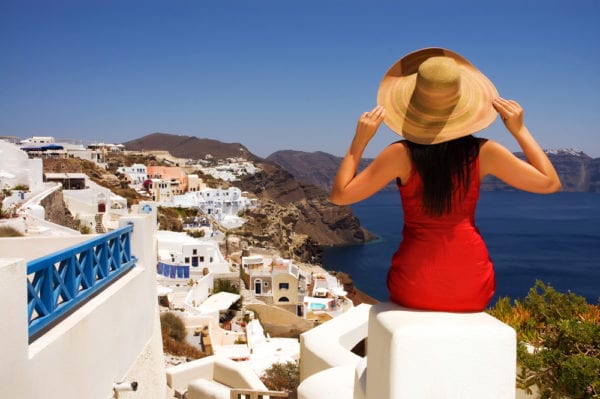‘Another world’: Plunging a liberated heroine into a conservative society
‘Another world’: Plunging a liberated heroine into a conservative society
‘Another world’: Plunging a liberated heroine into a conservative society
-
Hannah
-
Hannah


‘Your women’s lib doesn’t work here.’
So the heroine of my novel Aphrodite’s Tears is told when she comes to work on a little Greek island. It’s the 1970s, and Oriel is a strong, independent woman – an archaeologist who has been hired to oversee a deep-sea exploration of an old shipwreck. She is not the first female ‘outsider’ to join the teams of workers on the island of Helios, however, and she soon discovers that the other women have not lasted long. She is curious about the reason for the other women’s departure; curious, and perturbed. So she asks her employer and the island’s leader, Damian, for an explanation.
‘Men,’ is his response. ‘They wouldn’t be the only foreign students who didn’t have a clue how to conduct themselves on the more conservative of the Greek islands,’ he tells her.
This response earns Damian a frown. ‘By that,’ Oriel says, ‘I suppose you mean they deserved whatever unpleasant experience they got, is that it?’
‘That’s not what I said, no. Look, some of them get drunk in our tavernas, they flirt quite openly with the married men of the island, who are dazzled by their forward ways. You can’t behave on Helios as you would in your own country,’ Damian tells her. ‘The community on Helios is conservative … most of the islanders have never left its sanctuary. The people here are simple folk who lead uncomplicated lives, and for the most part are happy. This is the main reason why Helios has never welcomed tourism. Like my ancestors, I don’t want to corrupt the island.’
‘Corrupt?’ At this, Oriel’s brows lift.
‘Let’s just say it’s a conservation island,’ Damian explains, ‘an island of notable environmental and historical importance that I’m protecting against undesirable change, like any other conservation area in the world.’
Oriel considers that, and finds that she does understand, to some extent. The island feels so remote, she tells him, it’s like living in another world. ‘But my concern,’ she adds, ‘is that you’re not giving your people a choice. Your attitude is almost feudal.’
‘Feudalism is a negative label,’ he replies, ‘Paternalism would be a better word to describe what we have on Helios. Stay a while, and you will understand. But you’re right, it is another world, in so many ways.’
Another world. A world with flaws, certainly, and a world that is out of step with the current time. But Helios is a beautiful world too.
Where can Oriel fit in that world? As that strong, independent, modern woman, should she stride in and try to persuade Damian to take Helios into the present age? Should she respect his outdated feudalism?
Or, in fact, can they find a middle ground, with respect for the old ways and exploration of the new… together?